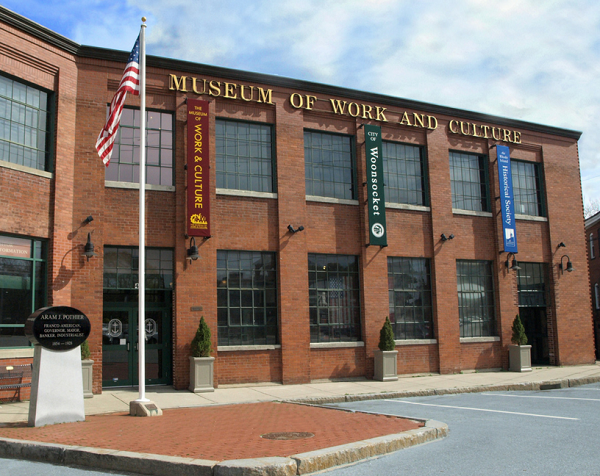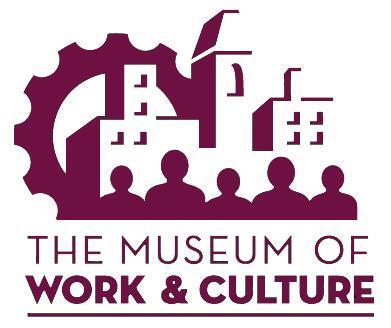Museum of Work & Culture Announces New Fall Hours

(WOONSOCKET, R.I.) – The Museum of Work & Culture, a division of the Rhode Island Historical Society, is happy to announce new expanded hours beginning Thursday, September 24.
The Museum will now be opened on Tuesdays, Thursdays and Saturdays from 10 am-4 pm for visitors who have purchased tickets in advance. Tickets are available at
The Museum is following all state guidance on cleaning, mask-wearing, social distancing, group size limits, and all other mandated health and safety protocols as outlined in the State of Rhode Island Phase III Guidelines. Exhibits feature signage related to capacity, motion sensors are being used to trigger audio features, and personal styluses are being provided to guests to trigger touch components. More information about their policies and procedures can be found by visiting
About the Museum of Work & Culture

The interactive and educational Museum of Work & Culture shares the stories of the men, women, and children who came to find a better life in Rhode Island’s mill towns in the late 19th- and 20th centuries. It recently received a Rhode Island Monthly Best of Rhode Island Award for its SensAbilities Saturdays all-ability program.
About the Rhode Island Historical Society

Founded in 1822, the RIHS, a Smithsonian Affiliate, is the fourth-oldest historical society in the United States and is Rhode Island’s largest and oldest historical organization. In Providence, the RIHS owns and operates the John Brown House Museum, a designated National Historic Landmark, built in 1788; the Aldrich House, built in 1822 and used for administration and public programs; and the Mary Elizabeth Robinson Research Center, where archival, book and image collections are housed. In Woonsocket, the RIHS manages the Museum of Work and Culture, a community museum examining the industrial history of northern Rhode Island and of the workers and settlers, especially French-Canadians, who made it one of the state’s most distinctive areas.
